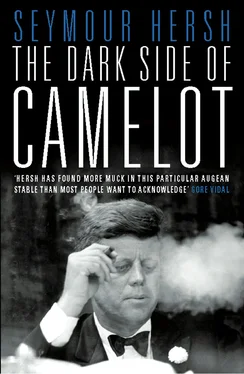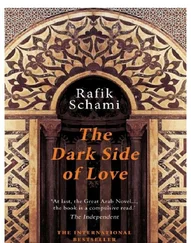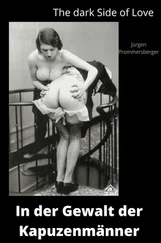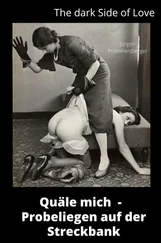1 ...8 9 10 12 13 14 ...34 The incomplete historical record is partially the result of the Kennedys’ purging of unsavory events from the family lore and the ability of family members to lie when necessary. The facts surrounding Fitzgerald’s ouster from Congress were protected by the congressional rule dating back to 1880 that sealed all unpublished investigative materials for fifty years. More than three thousand pages of House Elections Committee depositions and files dealing with the challenge to the 1918 election were not available to the public until 1969, and were then left unexamined and unpublished until research began for this book.
Fitzgerald won the House seat on November 5, 1918, by defeating the incumbent, fellow Democrat Peter F. Tague, by 238 votes out of the 15,293 cast in Massachusetts’s Tenth District. (Tague had been defeated by Fitzgerald in the Democratic primary election, amid charges of vote fraud, and ran again, as a write-in candidate, in the general election.) The newly examined elections committee files show that the Fitzgerald forces, who included his young son-in-law Joseph P. Kennedy, recruited immigrant Italians, then entering the United States in huge numbers, and sent them into election precincts with instructions to use threats and physical violence to prevent Tague supporters from casting their special ballots. A few professional boxers were also hired. The House investigators determined that at least one-third of the votes in three precincts in Boston’s teeming Fifth Ward were fraudulent, so-called mattress votes cast by men who were falsely registered as living in the district in order to vote on election day. Other Fitzgerald votes were determined to have been cast by men who had been killed in combat or were still stationed overseas in World War I. Most of the illegal votes came from a strip of notorious bars and houses of prostitution in the Fifth Ward, and it was these votes, so the committee concluded, that enabled Fitzgerald to steal the election.
Fitzgerald offered little defense during the months of congressional inquiry, other than to insist that he had been “framed” and to deny that any fraud was involved in his election. The elections committee’s report was debated for more than four hours on October 24, 1919. The House voted overwhelmingly to unseat Fitzgerald and swear in his opponent on the spot.
Fitzgerald’s comment to newsmen outside the Capitol was almost jaunty: “Well, McKinley was unseated by the Congress and became a candidate and was elected president. See what’s ahead of me?” In her bestselling biography The Fitzgeralds and the Kennedys , published in 1987, Doris Kearns Goodwin took brief note of the election of 1918 and its aftermath and observed that Fitzgerald, after being ousted from office, “remained as exuberant as ever, emerging once again from disgrace like a duck from water, and the local newspapers still considered him the leading citizen of Boston.”
Why was Fitzgerald so exuberant?
One answer may be that he was successfully practicing what is known today as political spin control—putting on an act for the public and the press in an attempt to minimize the importance of the disaster that had befallen him.
Another possible answer revolves around Fitzgerald’s lifelong ability to ignore the consequences of his actions. He had run for mayor of Boston in 1905 as a reformer but, once elected, presided over a regime that became infamous for patronage and graft. “From his earliest days in politics,” Goodwin wrote, “Fitzgerald had been able to compartmentalize his actions so that he could hold on to an image of himself as a ‘good’ man and a ‘reformist politician’”—even as he joined fully in the corruption of his administration. Fitzgerald’s instinct for compartmentalization and tolerance for political dirty tricks would be passed along to his son-in-law Joe Kennedy and to Kennedy’s second son, John.
Further, Fitzgerald might have understood how much more the House Elections Committee could have made public but did not. The unpublished hearings records of the committee depict Fitzgerald as a political leader who, like other corrupt big-city politicians of his time, relied heavily on alcohol, prostitution, and violence for financial and voter support.
The same files also demonstrate that Joe Kennedy was directly involved in many aspects of his father-in-law’s public life, an involvement that has been generally overlooked by historians. Fitzgerald family patronage of Kennedy is revealed in documents such as long-forgotten 1918 campaign leaflets in which Tague released letters showing that Fitzgerald had urged him to recommend Kennedy as a director of the federal Farm Loan Board (a position Kennedy did not get). Other depositions and documents show that the elections committee suspected Kennedy of playing a major organizational role on election day in November 1918, when the Fitzgerald forces used fraud and intimidation to win Tague’s seat. Some of the mattress voters from the shadiest hotels in the Fifth Ward were asked directly by suspicious House investigators whether Joe Kennedy had played a part in their illegal vote, but they provided no evidence. There was also a suggestion that Kennedy was involved in illicit campaign financing. A Fitzgerald supporter named Thomas Giblin told under oath of a secret $1,500 campaign account—roughly $50,000 in current dollars—in a small Boston bank then controlled by Kennedy, which was viewed by many of Fitzgerald’s campaign workers as particularly dirty. “They are all running away from it,” Giblin testified. He quoted Tague as telling Fitzgerald’s campaigners that he “would have them prosecuted if they used [the Kennedy] money.”
Fitzgerald, stung by his rejection in 1919 and later political failures, is described in family biographies as a happily doting grandfather who spent many afternoons in the 1920s catering to the needs of the children of his eldest daughter, Rose Kennedy, whose burgeoning family lived a few miles away until late in 1927. Fitzgerald became especially close to his two oldest grandsons, Joseph Jr. and John, taking them to the zoo, on boat rides in the Public Garden, and to cheer for the Boston Red Sox and the old Boston Braves.
Those accounts fail to emphasize the overriding toughness of the extended Fitzgerald family, a trait that was passed along to future generations and, eventually, into the presidency. Chester Cooper, a CIA official who served in the Kennedy White House, spent his summers in the 1920s a few blocks from the beach at Nantasket, south of Boston. The Fitzgerald summer house was directly on the beach. “I remember playing in front of the Fitzgerald house,” Cooper told me in an interview. “A couple of burly guys came out of the house and said, ‘Get off our beach.’ I remember saying, ‘This is a public beach.’ I was violently hit for the first time in my life. They were [Fitzgerald] sons and uncles. They literally kicked us off the front of the beach.”
The Fitzgeralds and the Kennedys always took care of their own. In the mid-1930s, Joe Kennedy risked his standing as an insider in the Roosevelt administration by urging the president to appoint one of Fitzgerald’s brothers to a federal liquor position. President Kennedy, carrying on the family tradition, ignored talk of nepotism and appointed his brother attorney general; he ignored it again in 1962 by ensuring that Edward M. Kennedy, his youngest brother, was nominated and elected to the Senate from Massachusetts.
Fitzgerald’s relationship with his often-absent son-in-law Joe was never close, according to the Kennedy family biographers. There was a crucial side to Honey Fitz, and his continued popularity among many Boston voters, that the constantly upward-striving Joe Kennedy could not comprehend: the mayor was an old-fashioned pol who was unapologetic about his humble beginnings and worked incessantly to present himself as a man of the people.
Читать дальше












